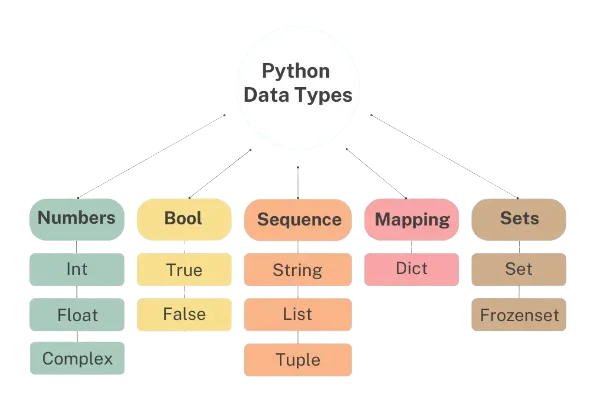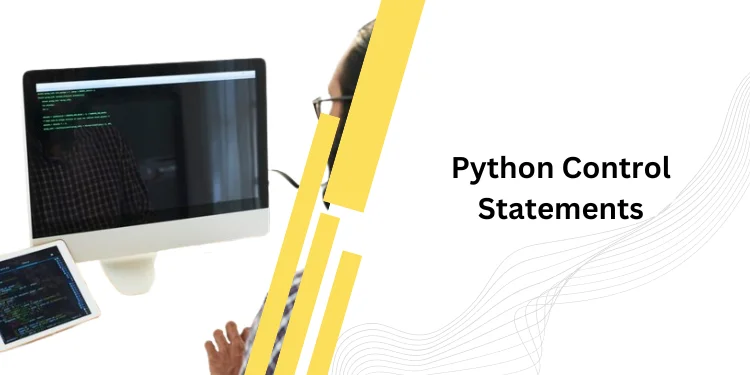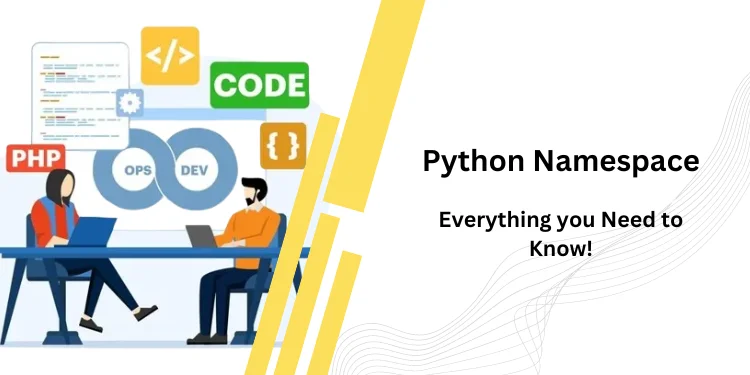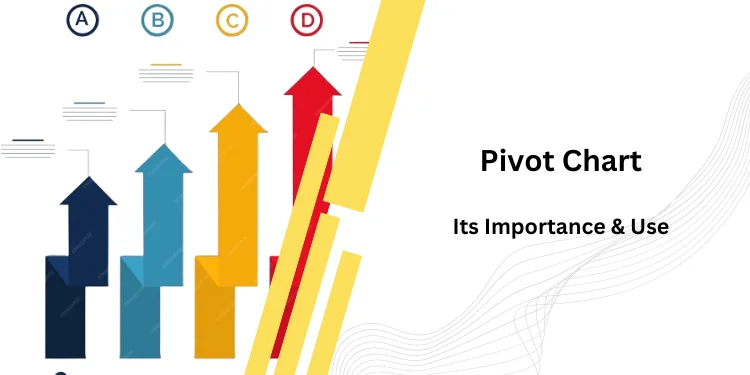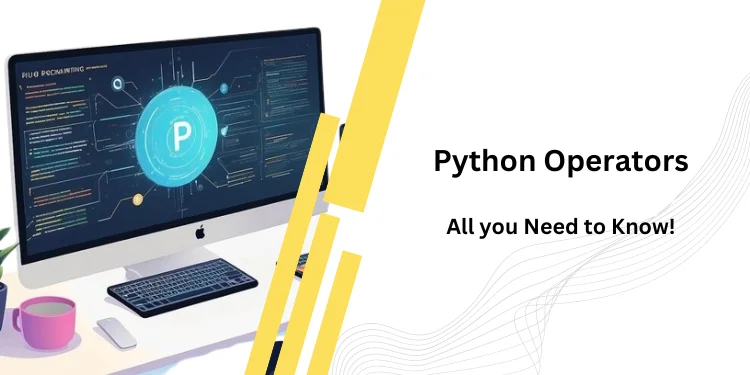Introduction to FMCG Full Form
Welcome to the world of FMCG or Fast-Moving Consumer Goods! FMCG is a term used to describe a type of consumer packaged goods that have a relatively low cost but are bought and often sold as part of everyday life. The primary components of FMCG are food, beverages, health, and beauty products. It also includes paper goods (like toilet paper and napkins), household items (such as cleaning supplies and appliances), and clothing.
FMCG companies typically focus on price, convenience, availability, quality, brand loyalty, and value for money to entice consumer purchases. The industry is highly competitive, with large companies vying for consumer attention through advertising campaigns and promotions. Many FMCG products have short shelf lives, so they must be replaced quickly to avoid losses in revenue.
FMCGs generally offer customers convenience; they are easy to find in most retail outlets and often can be bought impulsively without much deliberation or planning, making them ideal for busy households or single people living alone who don’t necessarily want (or have time) to overthink about their purchases.
The FMCG industry is an ever-evolving market constantly introducing new products and trying out new marketing strategies. Consequently, the FMCG full form of Fast-Moving Consumer Goods reflects the modern technological advances in production techniques that result in increasingly higher quality products for customers. At the same time, the sheer size of the industry means that competition between manufacturers continues to drive prices lower without sacrificing product quality.
Overall, Fast-Moving Consumer Goods represent an essential part of our daily lives, whether grabbing a meal on the go or picking up a necessity from the store.
Note:- Click Here to know more about such interesting articles E-Commerce
What Does FMCG Mean?
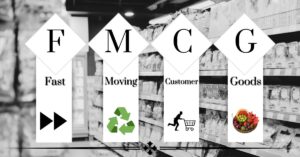
Are you curious about what the FMCG full form stands for? It’s an abbreviation of “Fast-Moving Consumer Goods,” It refers to a type of consumer product that is typically in high demand and has a short shelf life.
Essentially, FMCG refers to products that are consumed quickly, such as those found in supermarkets and convenience stores. Such products may include food items like soft drinks, snacks, dairy items, bread, and other baked goods. Non-food items such as toiletries, household cleaners, and health & beauty products also comprise the FMCG sector.
Some examples of famous companies associated with the Fast-Moving Consumer Goods sector include Nestle, PepsiCo., Proctor & Gamble, and Unilever. These companies often serve as the captains of industry for FMCG because of their large portfolios offering numerous products that can be found in retail outlets worldwide.
Investing in the FMCG sector can offer several advantages, given its broad customer base and global distribution networks. Additionally, since many customers often buy these products within a given period, this sector has ample opportunity for long-term revenue support.
Despite these advantages, however, the FMCG industry does face specific challenges, such as tight competition in pricing structures due to tight margins on goods sold by both producers and retailers alike, as well as ever-changing consumer tastes and preferences that require swift product changes/updates to stay competitively relevant.
Businesses hoping to succeed in this space must focus on innovation while managing their costs efficiently. Additionally, they must explore different marketing channels, including digital avenues, to ensure.
Types of FMCG Goods
FMCG full form Fast-Moving Consumer Goods, which are products and services that are quickly consumed and replenished. They are also referred to as consumer packaged goods (CPG). This category of goods includes a wide range of products, from basic household items to over-the-counter medicines and health care items.
FMCG companies manufacture the majority of the products we use daily. Food, beverages, hygiene supplies, cleaning supplies, skincare products, clothing, and electronics are all examples of FMCG products. These products are typically sold in retail establishments such as supermarkets and convenience stores. Because of the high demand for consumer goods, FMCG is a global economy-based largest industry.
The FMCG industry has seen increased demand over the past decade due to changes in consumer habits and preferences. With the rise of online shopping platforms like Amazon, more people are turning to the internet when looking for their favorite FMCG products instead of traditional retailers. Furthermore, many companies now offer subscription services that provide regular shipments of desired FMCG goods directly to consumers’ doors.
Overall, FMCGs play an integral role in modern life and significantly impact our everyday lives by providing essential goods and services. They have become an important part of our lives as we rely on them for our needs.
*Important Notes:- FMCG provides you food items and other daily use products. You can open your own ecommerce site to make profit. Learn what Top 8 Key Objective of Ecommerce Strategy
Benefits & Drawbacks of FMCG
BENEFITS
1. Fast Moving consumer goods (FMCG) are a product category that includes a wide range of low-cost products. Fast-moving consumer goods in the FMCG full form refers to products typically consumed quickly within a short time, such as food, drink, and household items. Companies in the FMCG industry are constantly looking for innovative ways to maximize their profits by introducing new products or improving existing ones.
2. The primary benefit of FMCG is that consumers can quickly and easily get access to essential household goods at an affordable price. Since these products have low prices, they can be bought in bulk, allowing people to save money on multiple purchases rather than buying one item at a time. Additionally, these goods have a relatively long shelf life, which means they can be stored away without worrying about expiring too quickly.
3. Another advantage of FMCG is that it encourages competition between companies by providing customers with more options and improving the quality of their goods. This creates better customer value and allows companies to increase sales by introducing new items or existing advertising.
DRAWBACKS
1. Unfortunately, there are some drawbacks associated with FMCG as well. Due to their low prices and quick turnover rates, many consumers tend to buy more than they need, which can lead to wastefulness and over-consumption.
2. Additionally, the variety and selection of FMCG items may only sometimes meet customer needs since many retailers focus on stocking cheaper items rather than higher quality ones. Finally, due to the industry’s highly competitive nature, companies may resort to unethical practices such as false advertising or cutting corners during production to stay afloat financially.
3. Customers could easily switch to competing products, which is the most prominent risk. Consider a new product phase launch, where advertisements appear widely in the media. Still, customers need help purchasing in stores. How will the damage be calculated? Typically, the implied reasons are that manufacturing and logistics must complete the task or that coordination issues exist.
Trends in the Global FMCG Market
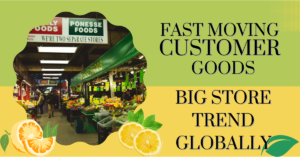
1. In a world where consumer spending is rising worldwide, it’s no surprise that the Fast-Moving Consumer Goods (FMCG) industry is experiencing significant growth. As a critical driver of global retail market growth, understanding FMCG trends is essential to staying competitive internationally.
2. First, let’s discuss the meaning of FMCG . FMCG full form is Fast-Moving Consumer Goods, items typically bought frequently and rapidly used up, like food, drinks, toiletries, and cleaning products. These products are generally sold in mass-market retail outlets such as supermarkets, hypermarkets, department stores, and convenience stores. As these are everyday consumables, retailers must restock them to keep up with customer demand constantly. This makes the FMCG industry highly competitive and dynamic.
3. One of the most focus able trends in the FMCG industry is the increasing consumer spending power worldwide. This has increased demand for premium products such as organic produce and high-end brands across categories, including personal care and grocery. It has also created a need for greater product customization to target different consumer bases with varying conditions.
4. The digital revolution has transformed the way consumers shop for FMCGs too. As customers become more tech-savvy, they are leveraging digital platforms more than ever before to compare prices and research products before making a purchase decision. This transformation has also pushed many companies to invest more heavily in their e-commerce presence to remain competitive in a rapidly changing landscape.
5. In addition, online stores have emerged, offering direct delivery services ranging from monthly subscription boxes filled with essential household goods to same-day delivery.
How to Enter the FMCG Industry?
Entering the fast-moving consumer goods industry can seem daunting, but it can be an enriching experience. FMCG full form, is Fast- Moving Consumer Goods and refers to everyday items, such as food, beverages, toiletries, and cleaning products, that are sold quickly and at a relatively low cost. Whether you’re just starting or looking to expand your business into the FMCG space.
Here are Three Helpful Tips for making it a Successful Venture.
1. Understand FMCG:
A good place to start is by thoroughly researching the FMCG industry and familiarizing yourself with its products and services. Understand your target customer base and their needs so you can tailor your products and services accordingly. Look into local market trends, competitors, and pricing data to understand the landscape better.
2. Research local markets & competitors:
It is essential to understand who your target customers are and how they operate in their respective markets. Search local market trends to discover opportunities to sell your products or services. Furthermore, identify your competitors within this space so you can stand out from the competition with unique offerings or pricing strategies.
3. Identify target customer base:
This is critical when entering any new industry because it helps to understand who and what your customers expect when they buy something from you or invest in any of your services. Reach out to potential customers through surveys or focus groups so that you’re better able to gauge demand for what you offer.
Understanding the FMCG Full Form & its Definition & The FMCG’s Role in The Global Economy.
FMCG full form is Fast Moving consumer goods, abbreviated by FMCG in short form, which are everyday items that are regularly stocked and quickly sold. In other words, FMCG products are things you’ve heard of and seen daily! FMCGs include groceries, snacks, beverages, and many household items.
FMCG companies and their respective industries have a massive role in today’s global economy. This is because these products are so widely used and purchased, which leads to a large amount of revenue and profit from selling these goods. Furthermore, FMCG companies also have great potential for growth because they can quickly expand into new markets as long as they find their target audience.
For example, look at a company like Unilever – one of the world’s largest FMCG companies. Unilever produces many products, from food items to hygiene items such as shampoo, toothpaste, and soap. This demonstrates just how vast the product range is for an FMCG company! Furthermore, Unilever has successfully reached customers worldwide through traditional marketing methods such as television commercials and digital channels such as social media platforms.
Overall, understanding what fast-moving consumer goods are and their importance in today’s economy is essential for businesses wanting to stay competitive in their respective markets. Understanding what types of products make up the FMCG industry and the strategies used by successful companies within this field will help businesses better.
Conclusion
Consumer goods with a high turnover rate have a large market that is not only large but also highly competitive. HUL, ITC, Himalaya, Britannia, Dabur, and Marico are some of the world’s largest companies competing for market share in this sector.
Companies like this must focus their marketing efforts on fast-moving consumer goods to persuade and attract customers to buy their products.
As a result, packing plays an essential role in the manufacturing process. Logistics and distribution systems frequently require secondary and tertiary packing to increase efficiency.
The unit pack, also known as the primary packaging, is critical for product protection and shelf life and provides information and sales incentives to customers.
FCMGs are regarded as a reliable source of funds because they are sold in large quantities. This massive sales volume compensates for the low-profit margins on individual sales.
Frequantly Asked Questions
1. What does FMCG companies mean?
Fast-moving consumer goods are items that sell fast and at a cheap cost. These items are also known as consumer packaged goods. Because of high consumer requirements (e.g., soft drinks & confections) or because they are perishable, FMCGs have a short shelf life (e.g., meat, dairy products, and baked goods).
2. What is the FMCG food industry?
Fast-moving consumer goods (FMCGs), or consumer packaged goods (CPG), are products in high demand, sell quickly, and are reasonably priced. These items are considered “fast-moving” because they are quick to leave the shelves of a store or supermarket. After all, consumers use them regularly.
Nestle India Ltd (NIL), the Indian subsidiary of the global FMCG (fast-moving consumer goods) conglomerate Nestle SA, launched the Maggi brand in India in 1982 with the introduction of Maggi 2 Minute Noodles, an instant noodles product.
FMCG companies like Swiggy and Zomato will begin adhering to these food labeling and display standards today. According to the new regulations, FMCG companies must now disclose the contents of a packaged food label in a “clear, unambiguous, prominent, and readily legible manner” and in such a way that any tampering with it is evident.
FMCG is a fast-paced, innovative industry. It is also the most stable. FMCG is the most stable industry, owing to the nature of its products, which are non-durable and quickly consumed. As a result, unlike buying a car, you cannot put off eating, showering, or cleaning your bathroom for too long.





